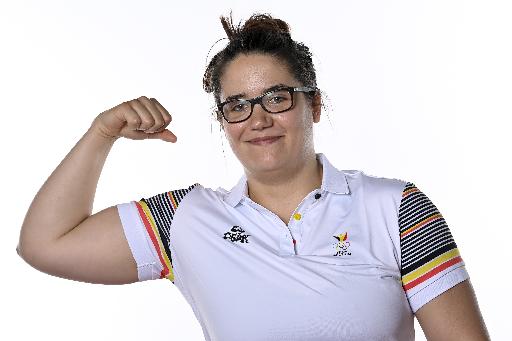
Olympics 2020: “The presence of transgender people is historic progress, but let’s get things back in balance”
(Belga) Anna van Bellingen was officially selected for the Olympic Games in Tokyo on Thursday. At the age of 27, the weightlifter in Brussels will discover the Olympic Games in the category of 87 kg and more, which will be especially followed. Indeed, among the contenders will be the first transgender athlete in the history of the Games: New Zealander Laurel Hubbard.
A post that raises controversy mainly about equality in sport. Anna van Bellingen, who is directly involved, has a well-argued opinion on the matter. “I’m not angry,” she told Belga. “The rules are the same. This athlete has the right to participate.” “I understand that from a historical point of view, we make the decision to say that transgender women can participate in competitions. It is a historical progress. But a balance has to be found. From an ethical and just point of view, we can ask ourselves questions. In this particular case, the difference in level between The men’s competition and the level you can go to in the women’s competition is huge. We’re talking about someone with a national level in New Zealand who became the vice world champion in 2017, qualifying for the Olympics hoping for a medal. I hope we ask ourselves the right questions and find a solution.” Gavin Hubbard became a woman eight years ago when she was thirty-five. After a year of treatment, she lowered her testosterone level to 10 nmol per liter as required by weightlifting regulations. Athletics has set its limits at 5 nmol/L. Hubbard weighed 300 kg in competition for men and 285 kg for women. “I have nothing against the fact that transgender people participate in competitions. But you have to be equal or a little more equal,” continues the future Belgian Olympian. “There, we’re talking about a power system where a man has a huge advantage of a 30% difference between a man and a woman in terms of performance. In sprinting it is 10%. Here, it distorts the competition. I hope this sets a precedent and that we will analyze the modalities of transgender participation. On one side. We should put it back in the middle. But if we leave it and say nothing, nothing will change and that’s not really fair.” (Belga)

“Proud explorer. Freelance social media expert. Problem solver. Gamer. Extreme travel aficionado.”
